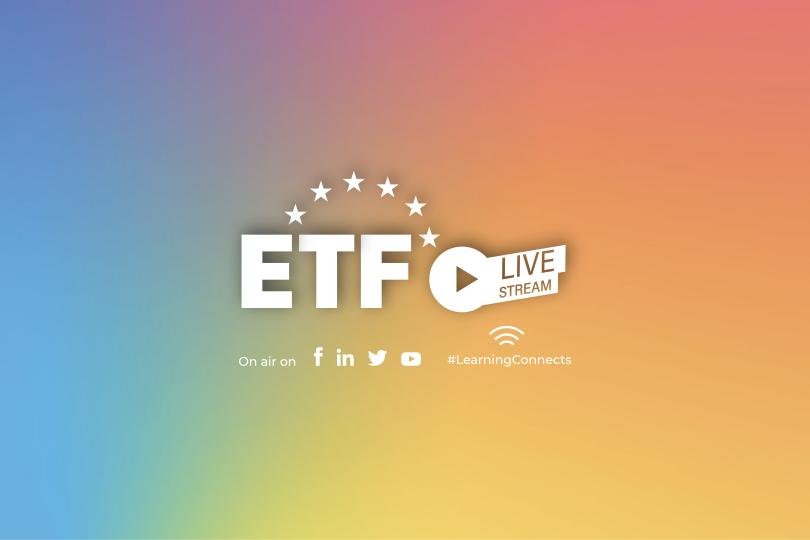
Skills and migration: focusing on the win-win policy priorities
Making migration a 'win-win' for the EU and its neighbouring regions was the focus of the European Training Foundation’s (ETF) latest #LearningConnects Livestream, 6 December, on 'Skills and migration: Policy priorities'. The hour-long live session – streamed over YouTube, Twitter, Facebook and LinkedIn – was part of the ETF’s December communication campaign on migration.
Introducing the session, Maria Lvova Zolotarevskaya of the ETF’s communication team, said governments, institutions and member states throughout the EU were 'trying to find better ways to manage migration for societies and economies', – both within the EU and in those countries that are key sources of migrant labour.
Anita Vella, Head of Unit of Legal Pathways and Integration, DG Migration and Home Affairs at the European Commission, emphasised that ensuring migration policies contributed to 'brain gain' rather than 'brain drain' was a key aim.
'The starting point is to understand what the needs are for more legal migration to the EU and what challenges there are – rolling out actions to help member states facilitate the arrival of legal migrants, making legal migration successful on the ground,' Anita said. 'We have to look at the skills needed by the EU labour market, and how we can match skills offered with skills demanded. How can we make this work to the benefit of both sides?'
Xavier Matheu, ETF Director ad interim, noted that a key issue was identifying what skills and qualifications migrants brought with them, and what labour markets in target countries needed. There was also a need to understand how the EU could help partner countries with the development of skills, so that migration was not seen as simply a one-way street.
'People migrate to find a better job – this is an important phenomenon worldwide – almost 5% of the labour force of recipient countries are migrants. Normally this happens because there is a mismatch in the labour market. In origin countries people cannot find a job corresponding to their skills level, in the host countries there are jobs that are not covered by the community there,' he said.
The ETF’s contribution was aimed at finding evidence to better support policies on qualifications and skills that could benefit both host countries and those that supply migrant workers.
'The more you invest in quality training and education in the places where those people come from, the better the conditions you find in the country itself and the better the capabilities of the people.'
Adopting policies that allowed for the harmonisation of qualifications – and the recognition of skills acquired in non-formal, or informal ways – was also an important factor in improving how migration works.
'Having a common language would help, today there are technologies to match the profiles of people and jobs. It is a question of putting this into practice,' Xavier added.
Making migration a benefit for all is at the core of the EU’s policy on the issue, Anita said.
'We have a broad policy – skills and talent package – improving the legal framework and operational initiatives aimed at making labour migration a triple win. It is key for our policy actions as we develop them. It is a complex process; you need to build it step-by-step in discussion with the right partners. You have to have the kind of conducive ecosystem where all are engaged politically to have talent partnerships that are really tailored to the third country the EU partner is working with. It is about how to make sure the partnerships are not just about addressing labour shortages in the EU but are also about forming partnerships of common interest.'
A new policy on Talent Partnerships would be rolled out in 2023, she added. The idea is to encourage circular mobility by working between EU member states and third-party countries to identify specific needs – those for skills in the EU, and skills development in the third countries. The approach will begin with round-table discussions with countries that include Morocco, Egypt and Tunisia – and there are plans to extend it to Pakistan and Bangladesh.
'Talent Partnerships are not about taking all the talent from the world for the EU; we need to look at brain gain, not brain drain,' she added.
There had already been a number of pilot projects involving individual EU member states and third countries, she said.
'In the Talent Partnerships, we want to use the results of these projects to develop political engagement with a third country to have a political frame for skills mobility and talent development.'
The key point was to engage member states in the process, and to look at specific sectors, such as construction, transport, agriculture and hospitality, where all sides could benefit.
Wrapping up the session, Maria emphasised the importance of including stakeholders – employers, civil society and others – in the process of working on making migration a winner for all involved.
Watch the #LearningConnects Livestream here.
Did you like this article? If you would like to be notified when new content like this is published, subscribe to receive our email alerts.